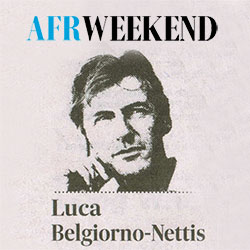In pockets around the world, democracy is being reinvented as it was conceived in ancient Athens – not modern Greece, I hasten to add!
Elections and referenda are all most of us know of democracy, yet elections were never really part of ancient democratic Athens. The Athenian parliament – the Council – was constituted of citizens, rich and poor, randomly selected by lot.
However, Westminster, from the days of the Magna Carta, has set the pattern for modernity. Henceforward, the UK political experience, has become a notable reference point for thinking about modern parliamentary democracies.
The Policy Network, a London-based think tank, published an account last month of the state of UK politics.
Throughout most of the postwar period, Labour and the Tories comfortably shared up to 90 per cent of the voting public, with relatively few non-voters. Today, they only win 67 per cent of the vote between them. The biggest ‘party’ winner in the 2015 election was not the Conservative party, it was that of the non-voter: more than one-third of the electorate.
When asked whether the UK public thought that politicians put themselves, their parties or the country first, respect for politicians has crumbled since the seventies.
The Policy Network account continues: “Political parties have never been loved by the public, their alleged susceptibility to oligarchy and self-serving corruption provoking disdain … Confidence in formal politics and its practice has been on the decline”.
In several countries, experiments in participatory, deliberative democracy are underway. In the US state of Oregon, referenda questions are reviewed by a citizens’ panel, before being put to the public. A randomly-selected and demographically-balanced group of voters is brought together to hear directly from the ‘for’ and ‘against’ campaigns, and then calls upon policy experts during the multi-day public review. At the conclusion of the process, the group drafts a “Citizens’ Statement”, which is published in the referendum pamphlet.
The Melbourne City Council just concluded a similar experiment – a review of its 10 year, $4 billion budget.
A group of 43 randomly selected Melburnians, meeting over six weekends, developing sound policy that is now being implemented. They had access to council financial, policy experts and bureaucrats and delivered a verdict.
“It is a profound result for anyone despairing at the state of our democracy,” said lead researcher Nicholas Reece.
In 1945 Friedrich Hayek wrote: “The problem of dispersed knowledge constitutes the central theoretical problem of all social science”. This insight raises questions about how a diverse, democratic community should make public policy. In the age of roller-coasting internet and media, one might suppose that the aggregation of knowledge is much easier now than ever before. However, with this incessant cavalcade, true aggregation is even more difficult.
Even though the internet promises so much in making dispersed knowledge useful, aggregation still eludes. And when politicians rely too heavily on the cloistered-expert approach to policy-making, not only do they ignore the inherent richness of a diverse society, but they blunt democracy’s comparative advantage.
In the context of the deepening disaffection with politics generally, modern democracies are likely to be faced with governments comprised of either majorities that are not really majorities; or coalitions of uneasy compromise. Perceived as unrepresentative, such governments will continue to be besieged by populist attacks. The recent Greek referendum on the eurozone is a case in point, but by no means atypical. The headline news reported an ‘overwhelming “No” result of 62 per cent. Did anyone highlight what the voter turnout was? When that’s factored in, the percentage of the whole electorate who voted ‘no’ was less than 40 per cent.
People often ask how current institutions might be transformed or complemented. One option might be to trial a randomly-selected upper House – a Citizens’ Senate – with the power to approve laws made by existing elected bodies. In this way, a considered deliberation by everyday people might help restore trust in public decision-making.
I think the challenge for modern states is to re-imagine the democracy that the ancient Athenians so brilliantly conceived: inclusive from the outset. Citizen juries are the genie out of the bottle – reincarnated today – uncorked 2500 years ago. With doubts surrounding their competency dispelled, real people power is something to behold. As US President John Adams said, “the preservation of the means of knowledge among the lowest ranks, is of more importance than all of the property, of all of the rich men”.
Luca Belgiorno-Nettis is founder and director of The newDemocracy Foundation.





